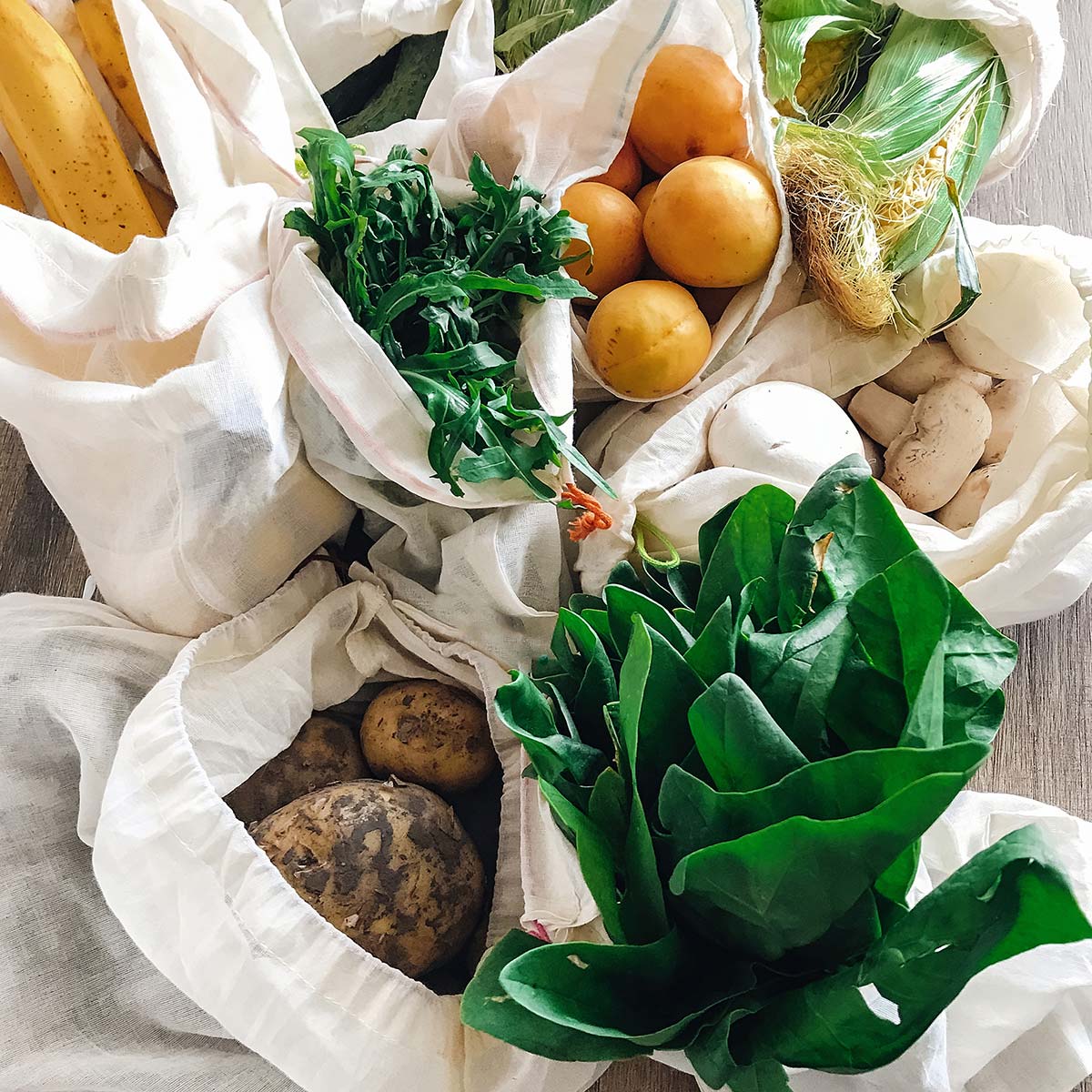
Vegan Nutrition Tips
Not all vegan food is automatically healthy. You could eat a dozen delicious flavours of vegan ice cream for breakfast, a stack of pancakes doused in syrup for lunch, and a dinner of cakes, cookies, meringues and cheesecakes.
It’s great that we can make or buy all these wonderful vegan treats but no one would think for a moment that they are healthy.
A healthy diet should include putting plants at the centre of our meals and enjoying ultra-processed plant-based alternatives in moderation, though this does not mean we have to sacrifice pleasure or flavour.
And if we choose fruit, vegetable, legumes, nuts, fruits, spices, herbs and some of the 20,000 edible plants that exist in the world, we can experience an incredible improvement in our health while enjoying some wonderful flavours.
Dr Michael Greger is an internationally recognised speaker on nutrition, food safety, and public health. He has devised a list of foods we should all aim to eat every day for optimal health. This is Dr Greger’s Daily Dozen.
Common Concerns
Protein
The first question asked of vegans is often where do you get your protein? This is really surprising because protein is in almost every single food we eat. Of course, there are better sources than others, but it is not difficult to reach the recommended daily intake as a vegan.
Some of the best vegan protein sources include tofu, tempeh, meat alternatives made from pea or soy protein, lentils, chickpeas, black beans, baked beans, edamame, seeds, nuts and nut butters, quinoa, oats and grains. Even vegetables contain some protein!
A typical day’s food that exceeds protein requirement might be:
Oatmeal with a sprinkle of almonds or seeds – 12g
One hummus and falafel wrap with a three-bean salad – 24g
Veggie sausages with potatoes, peas and broccoli – 30g


Calcium and Vitamin D
Just as meat does not have a monopoly on protein, milk does not have a monopoly on calcium! We can get calcium from fortified plant milk and calcium-set tofu. Beans and greens tend to be calcium-rich, so eat plenty of black turtle beans, kidney beans, soya beans, kale, watercress, okra and broccoli.
You’ll also find calcium in sweet potato, butternut squash and tofu, and if you snack on dried figs and almonds, you’ll be getting a calcium hit again. Plant milks and yoghurts are often fortified with it, too.
Vitamin D helps absorb calcium, and many people are low in this vital vitamin (particularly in the winter months), irrespective of their diet. Although fortified foods are available, these are not the best source – supplementing is best.
In the winter months, it is recommended everyone in the UK takes a vitamin D supplement, although some may choose to supplement year-round if getting sufficient sunlight is not possible. Vitamin D2 is always suitable for vegans, but vitamin D3 can be derived from animals, so ensure you choose a vegan brand of D3.
Iron
Although iron-deficiency anaemia is not uncommon, research suggests that those who eat a plant-based diet are no more at risk than those who eat meat.
Start your day with a breakfast of oats, or a cereal that is already fortified with it. Sprinkle some seeds and dried fruit on top, and you may just have reached your daily intake before you even leave the house!
Other foods to help boost your iron intake are: edamame beans, lentils, chickpeas, beans, tofu, tempeh, quinoa, blackstrap molasses, watercress, kale and other dark green leafy vegetables, nuts, sesame seeds and dark chocolate.
Be sure to eat plenty of vitamin C to help you absorb the iron in your food and avoid drinking coffee or tea with your meal, as this can reduce absorption.
Omega-3 and omega-6
Our bodies are able to make almost all the fats we need for the proper functioning of our tissues, but there are two we must get from our food – omega-3 and omega-6 – and for this reason they are known as essential fatty acids.
Omega-6 can be found plentifully in leafy vegetables, seeds, nuts, grains and most vegetable oils. It is very easy to get sufficient omega-6 on a balanced vegan diet, but this fat competes with omega-3 for use in the body so we need to make sure we are getting sufficient omega-3 every day.
Long-chain omega-3s (DHA and EPA) are found in fish (who obtain them from algae), and in sea vegetables. Short-chain omega-3s (ALA) are found in certain nuts and seeds, greens and soybeans. As the only food containing both EPA and DHA is sea greens, vegans should take a high-quality microalgae supplement to ensure we get enough, particularly during pregnancy and breastfeeding. This can be done alongside eating sources of ALA such as chia seeds, hemp seeds and walnuts.
Iodine
Iodine can be tricky to get right because having either too much or too little can cause thyroid problems. There are small amounts in nuts, bread, fruit, vegetables and beans but the best plant sources are seaweed and iodised salt, though the amounts in seaweed can vary quite widely.
The most simple and reliable way to get enough iodine is to take a 140mcg supplement every day.
Vitamin B12
This is the one vitamin that is tricky to obtain on a vegan diet. Vitamin B12 is present in animal products, but it is made by the bacteria inside animals and not by the animals themselves.
Vegans can get B12 by eating yeast extract, nutritional yeast (aka nooch), breakfast cereals and plant-based milks that are fortified with it. However, it is recommended that everyone on a vegan diet takes a supplement of this important vitamin to be sure they are getting a sufficient amount.
Of course everyone is different and some people have special nutritional requirements (e.g. pregnant women, athletes, those with chronic illnesses or nutrient absorption problems).
For specific nutritional or health concerns you should speak to a GP or a registered nutritionist.
Originally published on Veganuary.

